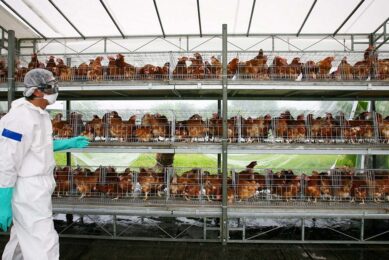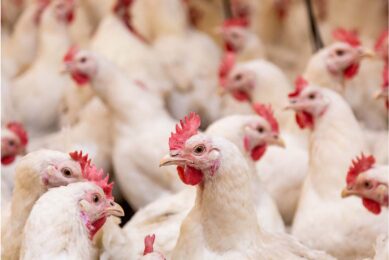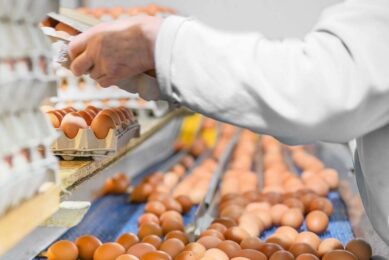The facts on bird flu
The European Commission has published a handy fact sheet about avian influenza, outlining its background, risks and effects, and providing guidance on poultry consumption and travel.
Core messages
• Avian influenza type H5N1 is a disease currently affecting birds in several parts of the world. For the moment, in the EU, most of the affected birds are wild water fowl such as swans and ducks.
• The H5N1 virus, which is responsible for this animal disease, does not easily cross from birds to humans.
• People that have been infected in other parts of the world had been in close contact with live or dead infected birds, principally domestic poultry.
• As the epidemic affects wild birds, it can be expected to continue to affect various regions of the EU in the coming months and so we will have to learn to live with periodic cases in birds.
• The disease may occasionally spread from birds to other animals such as cats. If ordinary precautions are taken in areas where infected birds were found, this does not lead to any significant increase in the risk to humans.
• Very stringent veterinary measures are in place in the EU. These seek to prevent the spread of the virus from wild birds to poultry and to contain any outbreaks in poultry.
• Temporary protection and surveillance zones are established in areas where infected birds are found. In these zones, movement of live animals is restricted, poultry is confined indoors and closely monitored, and disinfection measures are strictly applied.
• Very specific measures are also in place to protect domestic poultry and to prevent infected birds entering the food chain.
• In any case, thorough cooking ensures that meat and eggs are free of any virus.
• The risk to the public of catching the H5N1 virus from live animals or from poultry products is very low and there is no need to change food consumption habits or travel plans.
Consumption of poultry products
• It is safe to eat poultry – meat or eggs – that you buy in shops in the EU. This is because strict food safety and veterinary measures are in place to prevent meat or eggs from unhealthy animals entering into the food chain.
• Trade from protection and surveillance zones within the EU (where infected birds have been found) is only allowed under strict veterinary controls and imports from affected third countries are banned.
• In case of an outbreak in a poultry farm, the entire flock would be culled and disposed of immediately. Poultry meat and eggs produced in these farms are also destroyed.
• Even in the very unlikely event of the virus being present in meat or eggs sold in the EU, thorough cooking destroys the virus, so well-cooked meat and eggs pose no risk.
• Meat from vaccinated poultry is not harmful for human health as the virus included in the vaccine is killed and cannot multiply.
Groups at risk
• People who keep birds such as chickens, ducks and geese near where they live need not be overly alarmed, but they should be aware of the risks. In particular, they should:
– Follow instructions from local veterinary authorities, especially on the need to feed and water poultry indoors and to keep poultry indoors in risk areas.
– Notify the authorities if unusually high numbers of dead wild birds are seen, or if unusually high numbers of their birds die. In this case, people are not to touch dead or sick birds themselves
– Keep the birds out of their home and follow good hygiene rules – in particular, hand washing with soap when in contact with birds or bird excrement.
– Discourage their children from playing with the birds and teach them to tell an adult if they see sick or dead birds.
– Make sure children in particular understand the rules of basic hygiene.
– Never slaughter or eat sick or dying birds, as this could carry greater risk.
• Other people who come into regular contact with poultry (e.g. farm workers, vets) or wild birds (e.g. hunters, bird watchers) also need to be aware of the risks and take precautions.
• ECDC has produced detailed guidance on the protection of people at risk and those living or travelling to areas where infected birds have been found. National authorities are there to advise on any questions.
Other members of the public
• It is very unlikely that other members of the public would be in contact with infected birds.
• The following good sense precautions are sufficient:
– Don’t touch sick or dead wild birds or poultry and inform your local veterinary authorities if you find any suspicious numbers of dead or ill birds.
– Follow the normal rules of good hygiene – i.e. wash your hands with soap after contact with birds or their droppings
• If there is an outbreak of highly pathogenic avian influenza among birds in your area:
– Your national authorities may impose temporary restrictions on the movement of poultry and declare certain places off-limit to people. It is important that you follow these instructions as they are designed to stop the virus spreading.
– In these areas, pet cats should be kept indoors to prevent them from coming into contact with wild infected birds or their droppings, and to prevent them transporting the virus on their paws and becoming infected themselves.
Travel
• There is little or no risk from travelling to countries outside the EU or areas inside the EU where avian flu has been detected, provided you avoid visiting poultry farms or bird markets and follow the precautions outlined above, as indicated in the ECDC guidance.
Human flu pandemic
• We do not know when the next pandemic (i.e. a large and severe world-wide epidemic of a new human influenza virus) will happen or which virus will cause it. H5N1 avian influenza evolving or mutating into a form of human influenza is one possible scenario.
• At the moment the virus responsible for Avian flu (H5N1), does not transmit easily from human to human.
• Three pandemics occurred in the 20th century – in 1918-1920, in 1957 and 1968. Experts warn that another pandemic could occur at any time. Therefore the EU and its governments, World Health Organisation and other UN bodies are preparing for this eventuality.
• Vaccination against seasonal flu will not protect people from the possible new (yet unknown) pandemic virus as each flu vaccine is specific to a virus.
• EU and national public authorities have prepared contingency plans in case of a human flu pandemic, in order to be able to respond to the health consequences very rapidly. These plans foresee measures such as advice on public health (early isolation and mask-wearing), the provision of anti-virals, development of vaccines, emergency measures in healthcare systems, international co-ordination, etc.
Join 31,000+ subscribers
Subscribe to our newsletter to stay updated about all the need-to-know content in the poultry sector, three times a week. Beheer
Beheer








 WP Admin
WP Admin  Bewerk bericht
Bewerk bericht